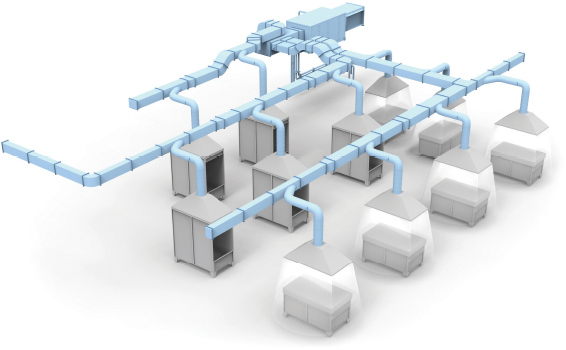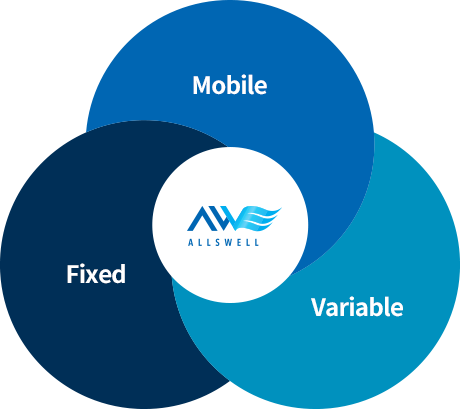Technology that prevents diffusion by removing pollution generated at a certain position
It is a technology that prevents the discharge from entering the workspace by setting the capture and removal areas for the pollutants that generate the discharge. It considers various variables in the workspace and combines a single or two or more modules to design the most suitable for the workspace.
Process

-
Stage 1
Generation Amount Calculation
Identify the physical and chemical characteristics of gas emissions and calculate the amount of generation 
-
Stage 2
Airflow Determination
Design hoods and determine required airflow to set target contamination capture and removal areas 
-
Stage 3
Identification of Character-istics and Arrangement
Identify the characteristics and workspace layout to which you want to introduce the system 
-
Stage 4
Spatial Identification
Identify the space to install the rear blower (or air purifier) 
-
Stage 5
Schematization after Duct Identification
Identify the path of the air transfer duct and schematization 
-
Stage 6
DSBM Progress
Determine the duct size, sha- pe, length, number of elbows, etc. with balanced design (DSBM) for each air transport duct section 
-
Stage 7
Determination of Pressure and Power Values
Determine the pressure value and blower motor power required for the entire system 
-
Stage 8
Drawing Creation
Create design drawings based on the determined data
Type

Mobile
Fans and exhausts can be moved and applied almost anywhere
ex) Small space or small amount of pollutant emissions
Fixed
Space where the location of the pollutants is fixed and the gas discharge conditions are constant
ex) robot welding, chemical reactors, raw material mixers, laboratories, etc.
Variable
When the location of the pollutants changes and the duct needs to be moved or changed
ex) manual welding, grinding, solder gas discharge, etc.
Applicable Fields
- Robot Welding Process
- Powder Coating
- Kitchen
- Process Plant
- Shooting Range
- Laboratory
- Etc.
